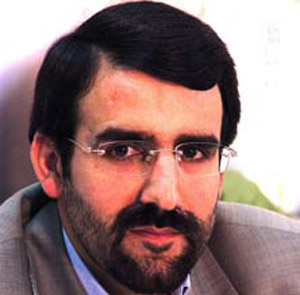Kremlin and the Future of Iran’s Nuclear Program
By Dr. Mehdi Sanayi, Iranian Parliament Foreign Policy Committee member and Russian affairs analyst

While the Russians have kept up to their fundamental foreign policy rationale, i.e. opposing U.S. unilateralism and advocating diplomatic solutions, it can’t be denied that their tone has gradually changed. There are two possible explanations for this tone shift, despite Russians’ assumption that any decision made outside the respected international norms can undermine the credibility of international organizations.
Strained relations between Kremlin and White House which stood at their highest during the last five years have eased since the last summer. United States’ plan to deploy a missile defense shield near Russia’s eastern borders had really got under Kremlin’s skin. The 2008 South Ossetia war just pushed bilateral ties to their nadir.
However, the United States has currently shelved the defense shield plan, while former Russian satellite states which witnessed color revolutions are not its priority anymore. Such developments have cleared the way for stronger diplomatic interaction between Russians and Americans.
Russians want Iran not to derail negations, to show more pragmatism in its foreign policies and to settle for an all-agreed solution over its nuclear program. In fact, they want Tehran to gain the trust of negotiating parties and facilitate the progress of multilateral talks. Moscow has now shifted its rhetoric from expressing hope for negotiations’ success to demanding Iran to exhibit further flexibility.
Russia is against sanctions for strategic reasons: Iran is Moscow’s major regional partner; it plays the key role in maintenance of regional stability while Moscow and Tehran enjoy strong economic ties. Russia has to play a difficult dual game in the nuclear case, since it should lend voice to Western powers’ demands while trying to keep Iran near at hand. However, the history of Iran’s nuclear program proves that when it comes to UN Security Council resolutions, Iranians should not expect Russians to veto anything.
China and Russia should have realized by now that long-term interests and regional security are only served through their cooperation with Iran and other members of the Shanghai Cooperation Organization. Casting votes in favor of UNSC resolutions –while it could never weaken Tehran’s determination to advance its peaceful nuclear activities- implies ignoring inalienable rights which according to international conventions Iran can enjoy. It only means unanimity with Western powers who manipulate international security discourse to refer Iran’s case to the Security Council.
The long-term interests of Moscow and Beijing, besides international norms, call for their effort to return Iran’s case back to the place it really belongs, the International Atomic Energy Agency. And the last word for Iranian nuclear negotiators and our diplomatic apparatus: find solutions which stop UNSC short of issuing further resolutions.
Strained relations between Kremlin and White House which stood at their highest during the last five years have eased since the last summer. United States’ plan to deploy a missile defense shield near Russia’s eastern borders had really got under Kremlin’s skin. The 2008 South Ossetia war just pushed bilateral ties to their nadir.
However, the United States has currently shelved the defense shield plan, while former Russian satellite states which witnessed color revolutions are not its priority anymore. Such developments have cleared the way for stronger diplomatic interaction between Russians and Americans.
Russians want Iran not to derail negations, to show more pragmatism in its foreign policies and to settle for an all-agreed solution over its nuclear program. In fact, they want Tehran to gain the trust of negotiating parties and facilitate the progress of multilateral talks. Moscow has now shifted its rhetoric from expressing hope for negotiations’ success to demanding Iran to exhibit further flexibility.
Russia is against sanctions for strategic reasons: Iran is Moscow’s major regional partner; it plays the key role in maintenance of regional stability while Moscow and Tehran enjoy strong economic ties. Russia has to play a difficult dual game in the nuclear case, since it should lend voice to Western powers’ demands while trying to keep Iran near at hand. However, the history of Iran’s nuclear program proves that when it comes to UN Security Council resolutions, Iranians should not expect Russians to veto anything.
China and Russia should have realized by now that long-term interests and regional security are only served through their cooperation with Iran and other members of the Shanghai Cooperation Organization. Casting votes in favor of UNSC resolutions –while it could never weaken Tehran’s determination to advance its peaceful nuclear activities- implies ignoring inalienable rights which according to international conventions Iran can enjoy. It only means unanimity with Western powers who manipulate international security discourse to refer Iran’s case to the Security Council.
The long-term interests of Moscow and Beijing, besides international norms, call for their effort to return Iran’s case back to the place it really belongs, the International Atomic Energy Agency. And the last word for Iranian nuclear negotiators and our diplomatic apparatus: find solutions which stop UNSC short of issuing further resolutions.

